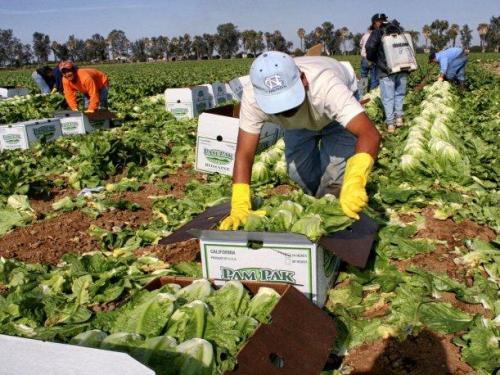Migrants in the context of the pandemic in the US
- Opinión

.... irregular and forced migrants are the new global excluded. Their status as planetary outcasts, among other processes of structural violence, is related to two dynamics. On the one hand, once in the destination country, the migrants are exploited workers, whose marginalization resides not only in overtime or low wages, but also in the lack of labor rights and social services. On the other hand, lacking immigration documentation and not having citizenship in the country of destination and in frameworks of unjustified criminalization, migrants do not have access to respect for their human rights, nor to the basic social security that any individual should have in current modern and democratic societies. Urban Arbide.
In memory of the more than 30 migrants from the Montaña de Guerrero Region who have died in New York in the COVID 19 Pandemic. For Balderrama, thinking that the world can be a more just and inclusive place….
According to recent estimates, the United States has become the world center of the COVID 19 pandemic worldwide (with more than 1.3 million infected and more than 79,000 deaths) [1]. And, according to the Democracy Now news site and in the context that New York is the area most impacted by infections and deaths, among the most affected groups are Latinos and African-Americans. This is due to three major processes.
(1) On the one hand, to the great capacity of contagion of the virus (which explains its wide geographic dispersion in the US and the whole world).
(2) But, on the other hand, in the case of the United States, the structural and chronic deterioration, reduction and privatization of the American health systems has also been added, a situation derived from decades of neoliberal and free market policies.
(3) Finally, and as Democracy Now and the New York Times have documented, the pandemic has been magnified by the delayed, erratic and inefficient response of the US government (characterized by the negligent and indifferent attitude of the American president towards the vast majority of the population).
The US has also been, for decades, one of the countries in the global north with the largest number of regular and irregular migrants worldwide. In particular, irregular migrants are millions and play a key role in various productive niches of that country's economy, from agriculture, construction, manufacturing, to the service sector (tourism, cleaning activities, store dispatchers, etc.). These migrants not only function as a cheap, flexible and highly precarious labor force, but, lacking benefits and being poorly paid and exploited, they also notably increase the profits of companies (within the framework of wealth growth processes and capital accumulation).
For years, and in the context of the current US government, these irregular migrants already suffered a series of processes of violence and exclusion (criminalization, mass raids, deportations, family separation and racist speeches and practices), both by government institutions, as from xenophobic nativist groups. Now, with the COVID 19 contingency, its situation has become more precarious at various levels [2].
A) On the one hand, and as La Jornada has reported, since they lack migration documents and have partial and incomplete working conditions, the majority of irregular migrants (hundreds of thousands) do not have access to health services and, in the current context, they are unable to receive medical attention [3].
B) On the other hand, and within the framework of measures to contain the pandemic, journalists from La Jornada have reported how the process of social isolation and suspension of economic activities means the temporary suspension of millions of these undocumented migrants from work. Especially affected are those who work in construction, manufacturing, and service activities [4]. Now they have run out of the livelihood with which they survive.
C) On the other hand, there are other hundreds of thousands of these migrants who carry out work considered “essential”, and who are clearly at risk and exposed to the contagion of COVID 19. They are those dedicated to agricultural work (which is almost 2.5 million of day laborers), or those who work in messaging or cleaning services in key sectors (hospitals, grocery stores, etc.) [5]. These workers are defenseless against the virus, not only because they are still exposed to contracting it, but also because, if they become ill, they do not have access to medical services.
D) Likewise, the impact of this pandemic in the United States will have negative and long-lasting effects for many people and, especially, for the migrant population [6].
As a result of the economic recession looming over the world and the United States in particular, there will be a contraction in the labor market and thousands of these irregular migrants will permanently lose their jobs, which will further increase their situation of exclusion and socioeconomic vulnerability. Now, as before the pandemic, undocumented migrants are among the most excluded and forgotten groups.
NOTES
[1] https://news.google.com/covid19/map?hl=es-419&gl=MX&ceid=MX:es-419
[2]https://www.jornada.com.mx/2020/04/11/mundo/024n1mun
[4]https://www.jornada.com.mx/2020/04/11/mundo/024n1mun
Del mismo autor
- Forced internal displacement in Mexico and processes of violence 13/03/2022
- Labor struggles against precarious work and agribusiness exploitation 09/01/2022
- Detentions, deportations, and criminalization of migrants 29/11/2021
- México: detenciones, deportaciones y criminalización de los migrantes 15/11/2021
- Visibility of migrant voices and subjects 18/10/2021
- La decolonialidad y el abordaje de las movilidades humanas transfronterizas 01/10/2021
- Migrants, social organizations, and policies to control cross-border mobility 20/09/2021
- Decoloniality and sense of the production of social knowledge 06/09/2021
- Decolonialidad y sentido de la producción de conocimiento social 26/08/2021
- México: migrantes, organizaciones sociales y políticas del control de las movilidades transfronterizas 09/08/2021
Clasificado en
Clasificado en:
Pandemia
- Gabriela Ramírez Mendoza 07/02/2022
- Jyotsna Singh 06/02/2022
- Gabriela Ramírez Mendoza 06/02/2022
- Richa Chintan 10/01/2022
- Isaac Enríquez Pérez 03/01/2022
